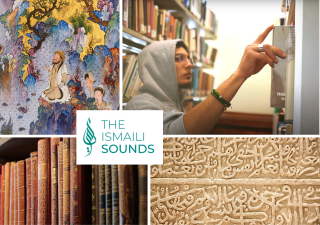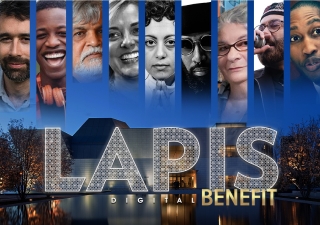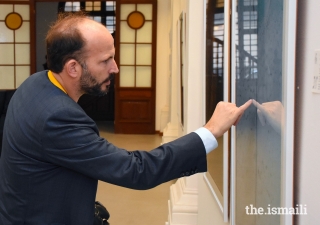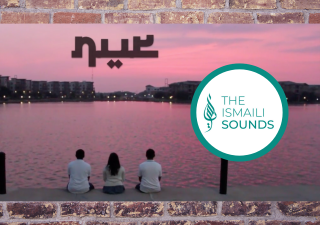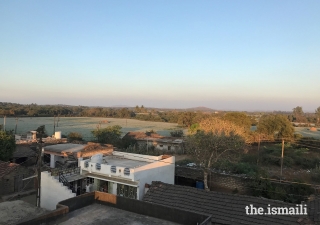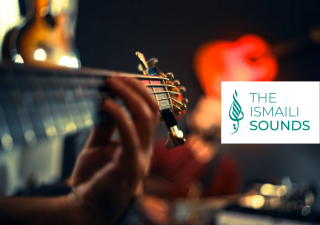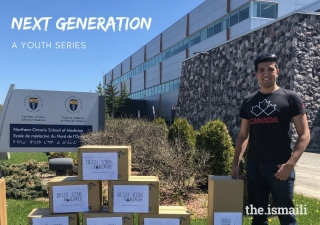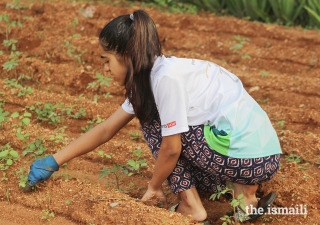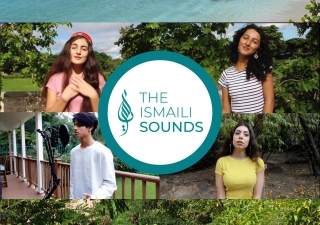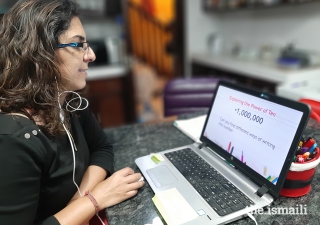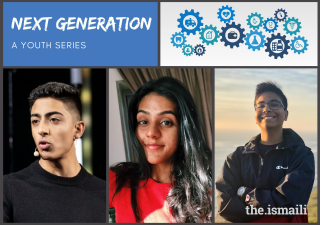What's New
Across the world, education has been one of the most severely disrupted areas in the wake of the ongoing coronavirus pandemic. Through the introduction of various online initiatives, the Aga Khan Economic Planning Board (AKEPB) in India has invested in upskilling for teachers, to help them navigate the new world of online education.
The Ismaili is pleased to present Calmate, performed by Hip-Hop artist Fidah, who in this song explores the balance between faith and world, and encourages open conversation on the existential questions of life.
The Aga Khan Museum’s annual fundraising gala will take place online this year, aiming to extend friendship across divides and reach a diverse, global audience. Showcasing performances and on-screen conversations with a wide array of luminaries from the worlds of art, film, literature, music and science, the event will also include a special address from Prince Amyn.
Join us today live from Spain, as Prince Hussain presents his exploration of the underwater world in his photographic exhibition 'The Living Sea' at the Hay Festival Segovia. The extraordinary collection aims to raise social awareness of the sublime beauty, complexity, and fragility of life in the oceans. He will speak with Prince Lorenzo de’ Medici – author and member of the distinguished Medici family – about the motivation behind the exhibition and his organisation, Focused on Nature. The event will begin at 7:30 PM CEST / 1:30 PM EDT, and will be webcast at the.ismaili/live.
The Ismaili is pleased to present an original composition entitled Nur by Conchord, a musical trio based in the United States. The lyrics contain themes of Divine Light and the grace of God, and the song features an English translation of ayat an-Nur from the Qur’an.
As India rapidly urbanizes, pockets of rural Gujarat continue to remain home to smaller communities of the Jamat. Anchored to their land and with strong ties to their community, they often live in areas that are seismically active. Since 2012, the Aga Khan Agency for Habitat’s Rural Habitat Development Programme, has focused on working with these communities to improve the resilience and safety of their built environment. In transforming their living spaces from houses to homes, the programme has helped improve residents’ quality of life.
The Ismaili is pleased to present Shab-e-Didam, a song in praise of Hazrat Ali. This rendition is performed by the DN Khorog Band from Tajikistan.
From supporting high school students applying to university, to generating awareness about the pandemic, to distributing personal protective equipment in remote communities, Ismaili youth from around the world have taken action to respond to the coronavirus outbreak.
A group of Ismaili students from Afghanistan and Tajikistan made the most of a difficult situation when they were unable to return home from the Aga Khan Academy in Hyderabad during the Covid-19 pandemic. With the abundance of spare time they were suddenly given, the students planned and implemented an organic farm on the school grounds.
Presenting Everything's Gonna Be Alright by the Pamoja Ensemble, made up of artistes from Kenya and South Africa, who came together virtually and composed this song of hope and faith.
The Covid-19 pandemic has forced teachers and students around the world to make an abrupt transition from classrooms to remote learning as schools, universities, and religious education centres were closed. Teachers redesigned lessons and adapted to the new reality of keeping students engaged virtually. Meanwhile, students adjusted to learning online without the ease of classroom interactions. Ismaili teachers and students around the world have risen to this challenge and are finding ways to embrace remote learning and tap into the opportunities it offers.
In recent years, the world has continued to grapple with the challenges posed by global health issues; from cancer to dementia to HIV. Around the world, Ismaili youth have been taking action to research, combat, and educate about these challenges and their associated risk factors.


